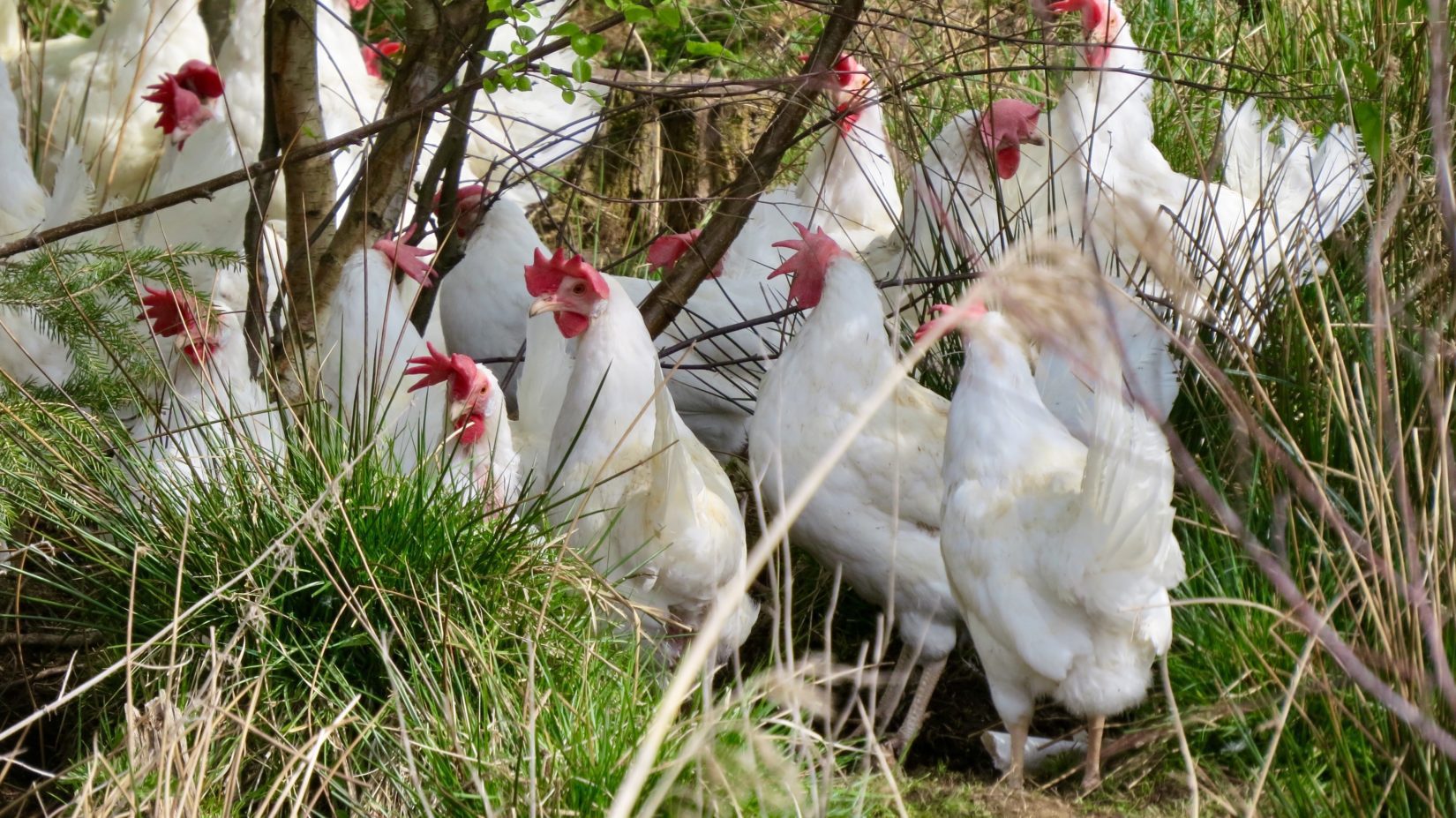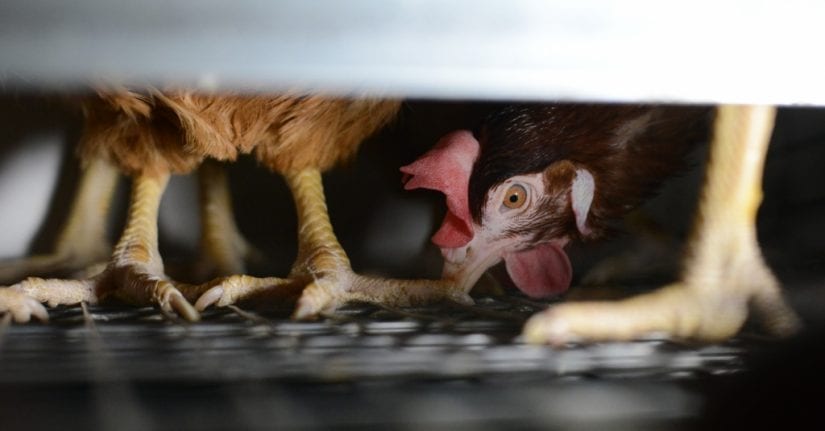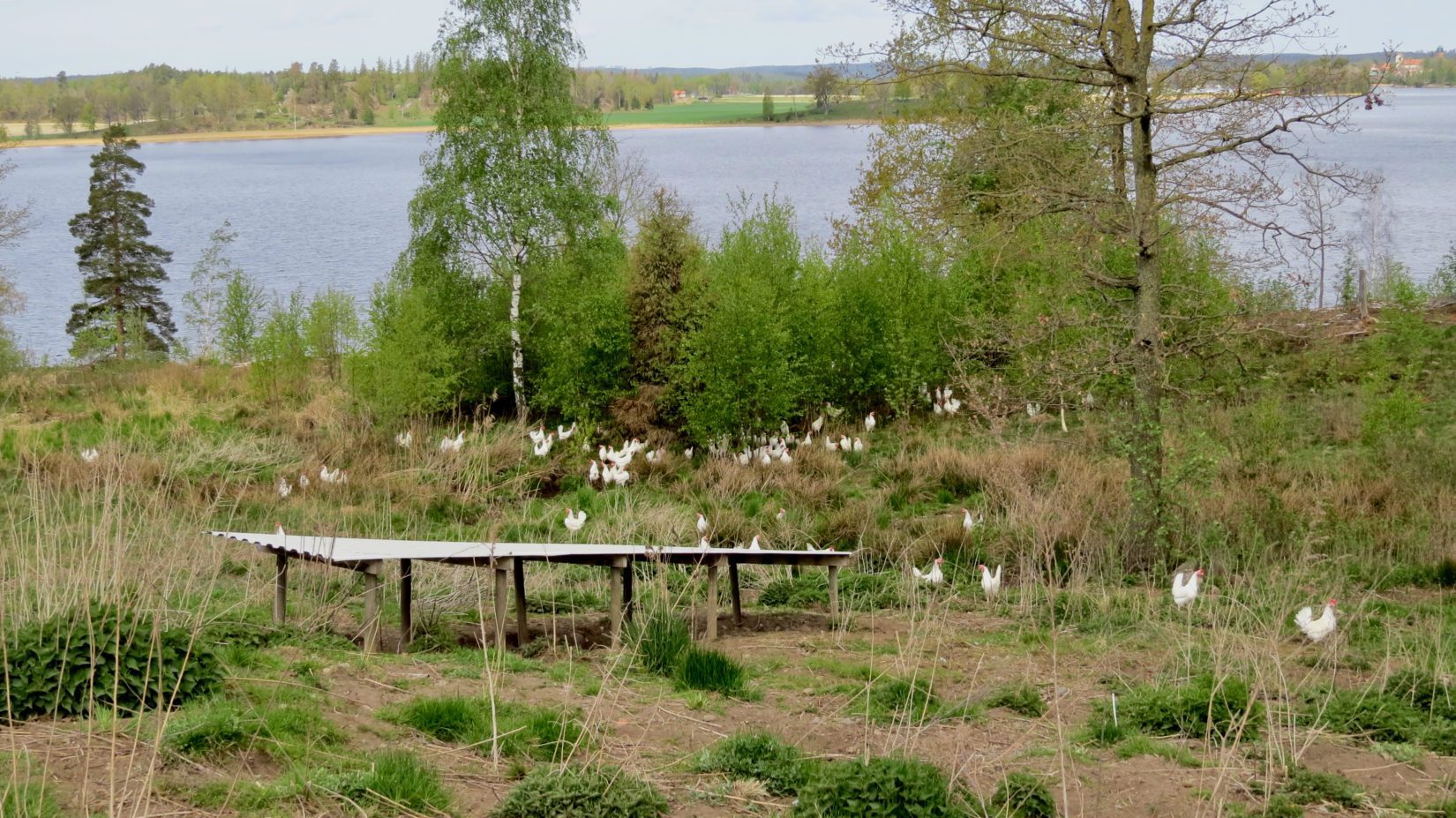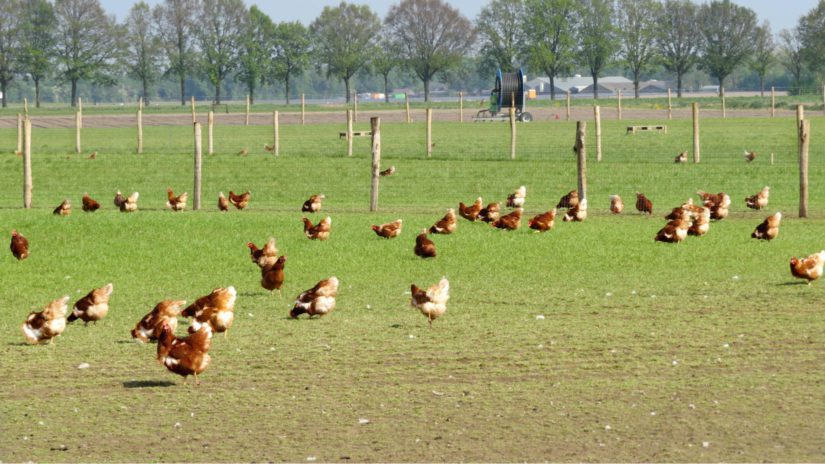In May, the BC SPCA’s manager of farm animal welfare, Melissa Speirs, attended a cage-free laying hen training program in Europe. How does Canada stack up against Europe in terms of laying hen housing? This was a question that Melissa was eager to answer. Read on to find out what she learned!

Egg-laying hens in Canada
In 2018, 71% of laying hens in Canada produced 6.4 billion eggs while confined in small cages called “conventional cages” (or “battery cages”). In conventional cages, each hen receives as little as 432 square centimetres (67 square inches) of space. That’s an area smaller than a standard-size piece of notebook paper. Hens don’t have enough space to spread their wings or perform other natural behaviours, leading them to become frustrated and bored.
Fortunately, conventional cages are becoming history. In 2017, the Canadian egg industry pledged to phase out the use of conventional cages by 2036. But this doesn’t mean that all hens will be cage-free. Egg farmers have the option to install “enriched” (or “furnished”) cages instead of going cage-free. Hens in enriched cages have few more centimetres of floor space than those housed in conventional cages. Enriched cages have 750 square centimetres (116 square inches) per hen. This is a bit larger than a standard piece of paper. These cages also have a couple features that allow for some natural behaviours, such as perches, nest areas, and a scratch mat.

The European perspective
In May 2019, Melissa was invited to attend the European Layer Training Initiative (ELTI). This 10-day program toured the Netherlands, Belgium, Sweden and Switzerland. Each day was packed with farm visits, lectures, and workshops from experts on cage-free housing.
A number of other North American egg experts joined Melissa in the training, including farmers, advisers, trainers, and university professors. Each participant brought a unique perspective, leading to valuable discussions and establishing a network of people who are passionate about working together to improve the lives of egg-laying hens.
What can we learn from Europe?
In terms of laying hen housing, European countries are much farther along than Canada. Conventional cages were banned by the European Union in 2012. When the ban was put in place, many European farmers chose to renovate their conventional cage barns into cage-free barns, instead of installing enriched cages, which were still allowed.
Today, very few European hens are raised in enriched cages. Most are raised in cage-free systems. Consumers drove this change; people demanded that laying hens be housed in cage-free systems, and refused to buy eggs from hens raised in cages. However, the transition was not easy. “So many factors need to be considered when making the switch to cage-free housing. Everything from the breed of hens, to feeding, barn design, raising chicks, and management needed to be adjusted for hens to be comfortable in a cage-free environment,” Melissa said.

Is Canada’s future cage-free?
In Canada, almost all eggs from cage-free systems are brown. Meanwhile, in Europe white eggs are most common in cage-free systems. Eggshell colour depends on the breed of the hen. Different breeds of chickens will thrive in different housing systems, just as some breeds of dogs are better suited to specific environments. For example, a Husky will tolerate cold weather better than a Chihuahua.
In Europe, farmers found that white feathered hens adapt better to cage-free housing. White hens tend to explore more and are more social than brown birds. This is why white hens are most common in cage-free systems in Europe. In the future, Canadian cage-free farmers may have hens that lay white eggs. It is time to stop judging an egg by its shell colour! Instead, look at the label on the egg carton.
As Canada looks to make the transition away from cages, there is a lot we can learn from European farmers. By learning from others who have already walked this path, Canada can have a smoother transition to cage-free egg production.

Picking the good egg
Look for logos such as SPCA Certified, Certified Organic, Animal Welfare Approved, Certified Humane, or Global Animal Partnership If you can’t find eggs with a certification, look for the words “cage free,” “free run,” “free range,” or “pasture raised.”
Learn more
If you can’t find eggs with a certification, look for the words “cage free,” “free run,” “free range,” or “pasture raised.”
Learn more
Learn more about BC SPCA’s farm animal programs.
Sign up for FarmSense and get stories like this delivered straight to your inbox.
